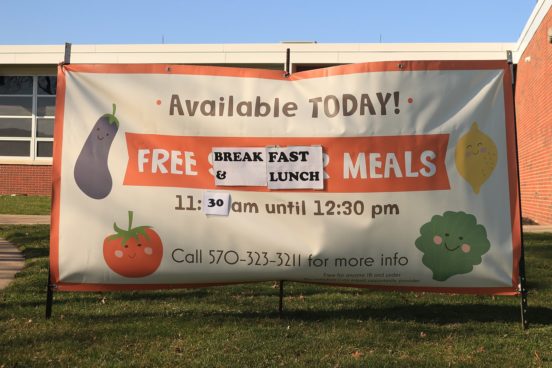The pandemic has prompted countless acts of caring — and compassion will show the way forward after it has passed. Kindness has thrived during the coronavirus lockdown.
In Gabriel García Márquez’s novel Love in the Time of Cholera, Florentino commands the captain of the river boat to raise a yellow flag signifying cholera on board. Passengers already on the boat get off, no new passengers embark, leaving Florentino and the widowed Femina together to love. The flag creates a place of separateness, allowing a deep relationship to flower.
There is a metaphorical yellow flag now flying across the UK. The lockdown triggered by the Covid-19 pandemic has echoes of that boat journey. Hemmed in, with all our movements and interactions constrained, many are experiencing rising fear, anxiety, exhaustion, frustration and anger. There is much uncertainty and confusion as to how to manage relationships altered by the pandemic. And it is within these relationships that life is lived. And lost.
It is also in the interstices of these relationships that compassion lives. Compassion can fill the space and join the separate and broken pieces. We have seen exceptional moments of compassion: the sign-up of 750,000 people to the NHS volunteer scheme; and the clapping for the NHS, care services and key workers across every city and village. And then there are countless unseen acts of compassion within communities, with neighbours checking in on neighbours, or customers purchasing the groceries of strangers who had clearly come off long NHS shifts as a signal of gratitude.
Such kindness didn’t start with Covid-19 — it was always there in people — but the pandemic has given us a space to see it and permission to be compassionate. A light is being shone on what happens every day in every town across the UK. What was hidden and unremarked upon is being noticed as an essential part of our existence, enabling us as a society to keep faith in the future and to believe that we can get through this.
There is an opportunity now to hold on to what we have, and to celebrate and grow it. Compassion can become a driver of change. Such compassionate action, the psychologist Paul Gilbert suggests, often involves individual acts of courage: to support colleagues in distress, stand up for the oppressed, or challenge authority when the wrong course has been taken. We have seen all of these during the past month.
We see daily the terrible toll the pandemic is taking on human life across the planet, particularly in low-income countries. At the same time, interventions to contain the disease have contributed more to tackling climate change in these few weeks than the Conference of the Parties has achieved in years. Flight reductions and a cut in the use of fossil fuels have seen carbon emissions fall. It is a terrible irony that a virus, which impairs the ability of human beings to breathe, has shown compassion to the planet, providing clean air for natural ecosystems to thrive.
How do we reimagine the future and avoid merely returning to the status quo? It is acts of compassion that are transformative. By acting to alleviate suffering, we will find our way through the acute, complex challenges of this pandemic — learning lessons that build towards healthier, more balanced and happier communities globally.
This article was originally published in The Sunday Times: https://www.thetimes.co.uk/article/acts-of-compassion-ingrained-in-lockdown-can-help-us-after-covid-19-say-scots-academics-jhhll5tmq
Liz Grant is Professor of Global health and Development; John Gillies is Honorary Professor of General Practice and co-director of Edinburgh Compassion Initiative; Kirsty MacGregor is Chief of the MacGregor Leadership Consultancy; Paul Brennan is Senior Clinical Lecturer and Honorary Consultant Neurosurgeon; Wendy Ball, consultant and senior fellow, Global Health Academy; and Harriet Harris, head of Edinburgh University chaplaincy service.
(https://commons.wikimedia.org/wiki/File:COVID-19_Free_Meals_Sign_for_Children_and_Students.jpg)
(https://commons.wikimedia.org/wiki/File:COVID-19_Free_Meals_Sign_for_Children_and_Students.jpg)










Comments by Ritti Soncco